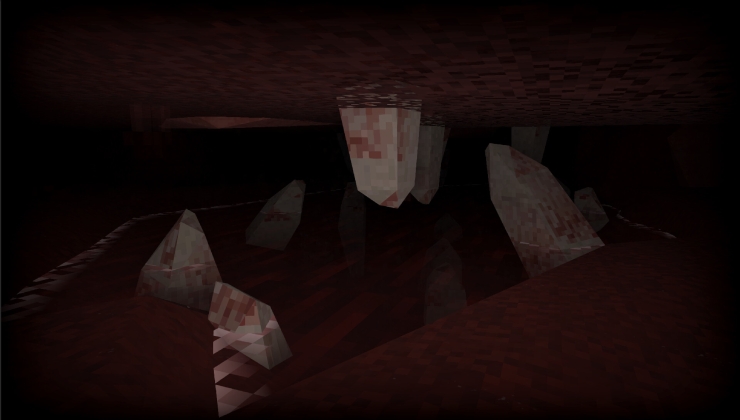As an update to the situation around Canonical planning to drop 32bit support (and Valve saying bye-bye to Ubuntu 19.10+ support), apparently they're not. Instead, the 32bit libraries will be frozen. Are you confused yet? I sure am.
Canonical's Steve Langasek has attempted to clarify the situation. Here's what they said:
I’m sorry that we’ve given anyone the impression that we are “dropping support for i386 applications”. That’s simply not the case. What we are dropping is updates to the i386 libraries, which will be frozen at the 18.04 LTS versions. But there is every intention to ensure that there is a clear story for how i386 applications (including games) can be run on versions of Ubuntu later than 19.10.
That's at least a little better, isn't it? They also said a little further:
[…] since the vast majority of i386-only software is also legacy (closed-source, will never be rebuilt), it also does not generally benefit from newer libraries […]
There's a pretty big difference from not being "included as an architecture", to having them available but frozen and still possible to use, isn't there? It's confusing, since that's not how it was originally explained. This is something that should have been said very clearly from the start.
Perhaps this might not be the epic disaster many people (myself included) thought it might turn out to be. We still have to wait and see how exactly they implement all this, and how it will affect gaming.
There's still going to be confusion and issues though, like upgrading drivers. Touching on that, Langasek said:
32-bit mesa will be available in the Ubuntu 18.04 repository. Note that mesa already gets updates in 18.04 which track the versions from later Ubuntu releases, as part of hardware enablement. If incompatibilities are introduced beyond 20.04 (which is the cutoff for hardware enablement backports for 18.04), we will need to address them on a case-by-case basis.
So it sounds like you're still going to be stuck in some ways. Seems like the proposal is still no good for Wine either (and so Steam Play too).
...that's not how it was originally explainedTo my eye, it doesn't read too terribly different than the last paragraph of the original announcement, perhaps a little bit clearer. But if the original announcement didn't suffice for Wine and Steam developers, I'm not sure why the restatement would.
Original announcement:
"...we will not provide 32-bit builds of new upstream versions of libraries..."
Restatement:
"What we are dropping is updates to the i386 libraries, which will be frozen at the 18.04 LTS versions"
Original announcement:
"there are a number of ways that 32-bit applications can continue to be made available to users of later Ubuntu releases, as detailed in [4]. We will be working to polish the 32-bit support story over the course of the 19.10 development cycle."
[4] https://lists.ubuntu.com/archives/ubuntu-devel/2018-May/040348.html
Restatement:
"...there is every intention to ensure that there is a clear story for how i386 applications (including games) can be run on versions of Ubuntu later than 19.10."
---
It's not clear that anything has really changed, other than some wording.
For example, this doesn't really address:
"Reading more carefully: their suggestion is to use a containerized 18.04 environment (snaps) to run Wine on a 19.10 system. This would use the 18.04 packages. But since there's no expectation of long term support for the environment containing 32-bit packages, I can't see any point in putting much effort into this temporary solution.
On an entirely different note, looks like it's pretty straightforward to install my VPN's client on Solus. Yes Mr. Langasek, I think that's great news too!
:D
Last edited by Nanobang on 23 Jun 2019 at 5:59 pm UTC
Just like with Mir and Unity all over again.
Personally, i do not expect Valve's decision to come quickly. If one of their devs says there is no real desktop distro after having ditched ubuntu so rapidly, i guess it means they were thinking about it for quite a while ad still haven't found what they were looking for.
Their investment in KDE/KWin looks interesting. I wonder if it's part of their plan to improve Linux desktop experience.
So I see this is the first step in the eventual backtrack however the damage has already been done. I have removed Ubuntu from my laptop and put Manjaro on it for now until Valve decide what to do next.
Canonical, Please get your house in order.
I think that it's time for Arch, Manjaro, Debian or Fedora to become the new leading OS for the desktop.
Don't forget openSUSE. ;-)
Also the devs behind MX and antiX would probably work with Valve in a smoother way than Canonical.
Last edited by Liam Dawe on 23 Jun 2019 at 6:55 pm UTC
Sounds like Wine still won't work: https://discourse.ubuntu.com/t/i386-architecture-will-be-dropped-starting-with-eoan-ubuntu-19-10/11263/121?u=liamdawe
It's good that he is highlighting the problem with their proposed plan:
So the solutions proposed in [4] like containers and snaps based on 18.04 will not fully work.
That was quite obvious.
Last edited by Shmerl on 23 Jun 2019 at 6:56 pm UTC
Sounds like Wine still won't work: https://discourse.ubuntu.com/t/i386-architecture-will-be-dropped-starting-with-eoan-ubuntu-19-10/11263/121?u=liamdawe
Good read, Liam.
How can the pros at Canonical miss THIS?
Shouldn't they know about the rough design and dependencies of one of their most prominent software packages?
I mean, dropping Wine isn't something they'd consider a good move for sure.
*facepalm*
It's getting uglier by the hour and Canonical are looking like Cowboys in the process.
Bad project managment.
Bad project managment.Canonical are known for that. It's not the first time. :) Remember the whole Mir vs Wayland debacle? It's not far off from that.
Last edited by Shmerl on 23 Jun 2019 at 7:09 pm UTC
Bad project managment.Canonical are known for that. It's not the first time :) Remember the whole Mir vs Wayland debacle? It's not far off from that.
Which is VERY unfortunate because I actually like companies trying new stuff and being courageous - so I feel a bit bad when bashing such efforts - but it was just a stupid idea and not helpful at all. :/
Which is VERY unfortunate because I actually like companies trying new stuff and being courageous - so I feel a bit bad when bashing such efforts - but it was just a stupid idea and not helpful at all. :/
Sure, I'm all for progress and innovation. But one that doesn't break user experience or creates a huge rift in the Linux desktop (like Mir almost did).
Why did they test games without 32 bit libs if they never intended to remove them?As their communication, was obviously rather poor even in their own ranks.
This was obviously not run through a marketing department first, else the misunderstanding about that they would make it impossible to run 32bit programs would not have arisen, and the clarification would not have come as a surprise for those that believed that.
I just fear now that they will be even less open in the future about their coming plans and have marketing people going over all the Canonical employed developer write on their public development boards and elsewhere.
There are several reasons. Two of them are these. Bad decisions and bringing those bad decisions across to their users.
Last edited by [email protected] on 23 Jun 2019 at 7:15 pm UTC
Shouldn't Canonical began to discuss this decision with the parties involved before announcing anything officially?
It's getting uglier by the hour and Canonical are looking like Cowboys in the process.
Bad project managment.
Are you sure this is not what they intended by that? They announced in the beginning of 2018 that they would finally decide mid 2019 whether to continue with the 32bit distribution or not. But apparently no one, at least not me and most other people I read posts from though it would involve dropping 32 bit libraries for 64bit systems.
Poor communication definitely. But now there are discussions about going forward.
Bad project managment.Canonical are known for that. It's not the first time :) Remember the whole Mir vs Wayland debacle? It's not far off from that.
Which is VERY unfortunate because I actually like companies trying new stuff and being courageous - so I feel a bit bad when bashing such efforts - but it was just a stupid idea and not helpful at all. :/
I know... But I can't help but feeling disapointed by such behavior. Canonical is still a high profile company, in the Linux universe ... You shouldn't have to expect that from them.
You may have the idea of exploring the possibility, but such unilateral decision is just bad business.
Sorry, Just my mindset...













 How to set, change and reset your SteamOS / Steam Deck desktop sudo password
How to set, change and reset your SteamOS / Steam Deck desktop sudo password How to set up Decky Loader on Steam Deck / SteamOS for easy plugins
How to set up Decky Loader on Steam Deck / SteamOS for easy plugins
See more from me